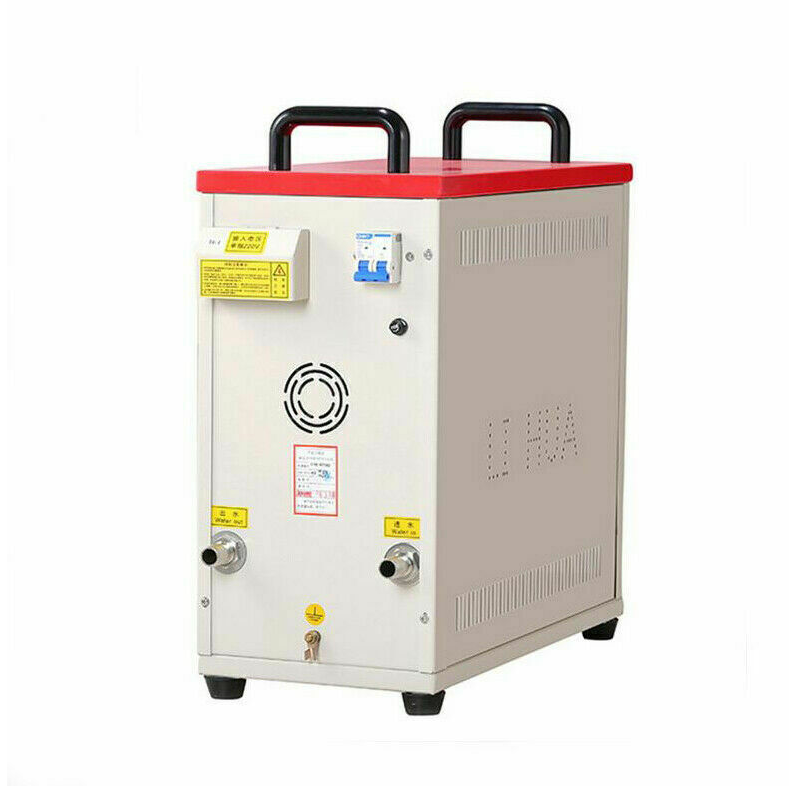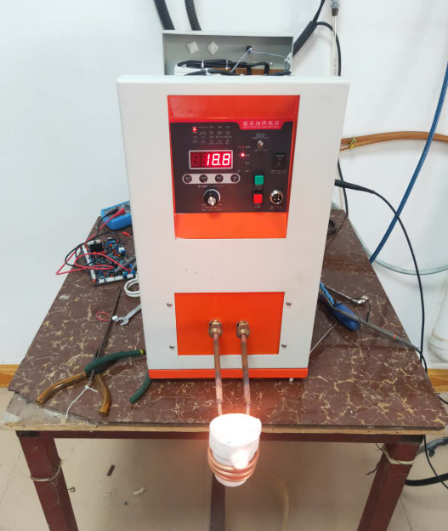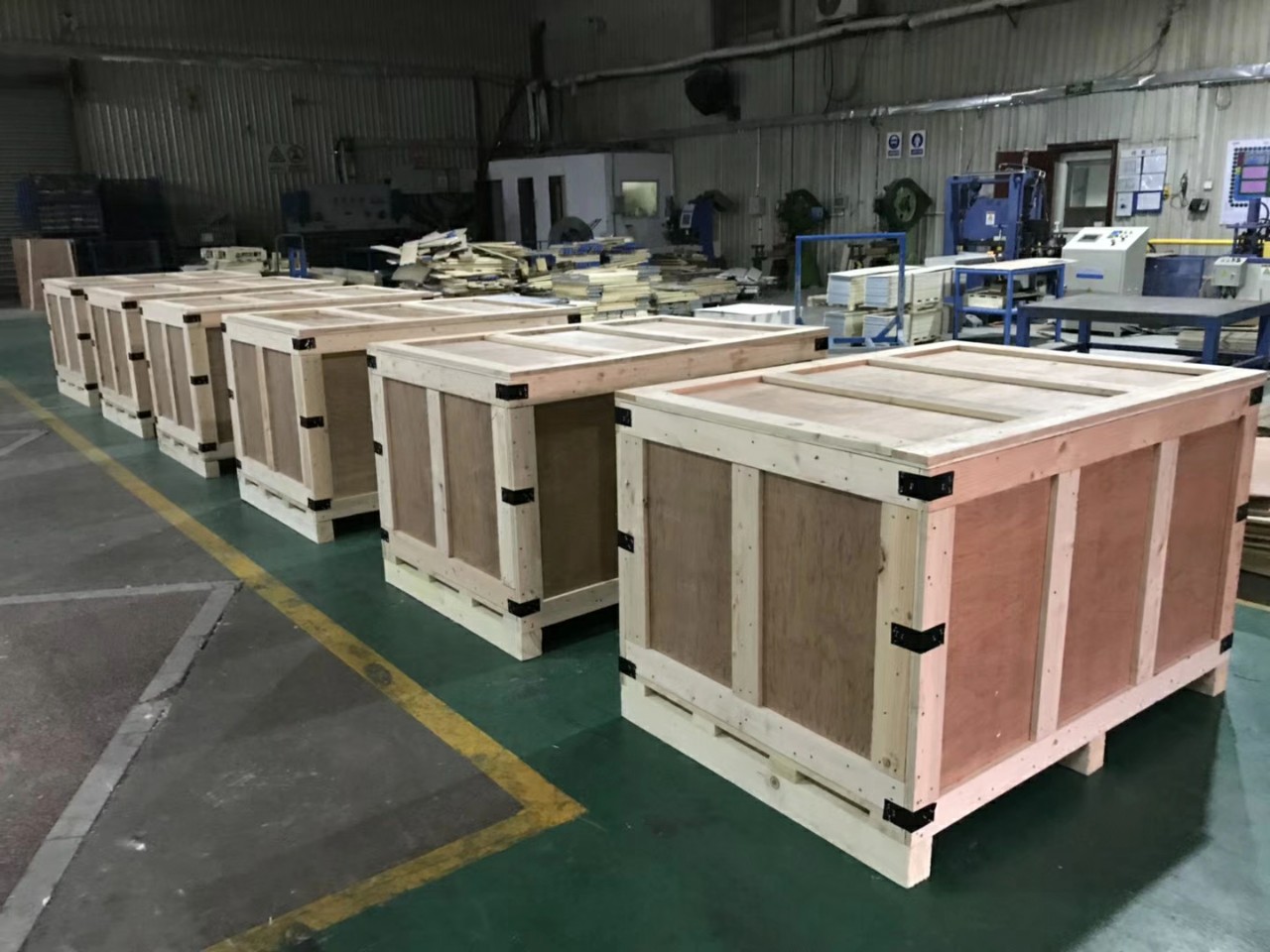10kw High Frequency Induction Heating Machine for Testing Induction
Heater
Product Description
Induction hardening of rails refers to a specific heat treatment
technique that serves the purpose of enhancing the hardness
and wear resistance properties of linear guide rails. Thanks to the
remarkable repeatability and controllability features of
induction hardening, the heat treatment procedure for the entire
rail can be made more automated. Typically, we utilize a
specialized rail induction hardening machine to carry out the
heating and cooling operations on the rails. Linear guide rails
play a crucial and indispensable role as components of machine
tools. They are required to possess high levels of hardness
and wear resistance. Once the guide rails undergo the hardening
process through induction hardening, their service life and
wear resistance capabilities will be significantly enhanced. In
general, after the induction hardening of guide rails, an induction
tempering process is usually carried out subsequently. This
induction tempering process can effectively and noticeably boost
the hardness of steel guide rails, decrease their brittleness, and
improve their toughness performance.



Application:
A. Heating (hot forging, hot fitting and smelting):
1 Hot forging aims to fabricate the work pieces of certain
temperature (different materials require different temperatures)
into other shapes through forging press with the help of punch
press, forging machine or other equipments, for instances, hot
extrusion of watch case, watch flan, handle, mold accessory,
kitchen and table ware, art ware, standard part, fastener,
fabricated
mechanical part, bronze lock, rivet, steel pin and pin.
2. Hot fitting refers to the connection of different metals or
metals with nonmetals through the heating based on the principle of
hot expansion or hot smelting, for instances, embedded welding of
copper core of computer radiator with aluminum sheet and speaker
web, compound of steel and plastic tube, sealing of aluminum foil
(tooth paste peel), motor rotor and sealing of tubular electric
heating element.
3. Smelting mainly aims to melt the metal into liquid by using the
high temperature, which is mainly applicable to the smelting of
iron, steel, copper, aluminum, zinc as well as various noble
metals.
B. Heat Treatment (surface quench):
It is mainly aims to change the rigidity of the metal materials
through the heat treatment to work pieces. Detail applications are
stated as follows:
1. Quench for various hardware and tools, such as plier, wrench,
hammer, ax, screwing tools and shear (orchard shear).
2.Quench for various automobile and motorcycle fittings, such as
crankshaft, connecting rod, piston pin, chain wheel, aluminum
wheel, valve, rock arm shaft, semi drive shaft, small shaft and
fork.
3. Various electric tools, such as gear and axes.
4. Quench for machine tools, such as lathe deck and guide rail.
5. Quench for various hardware metal parts and machined parts, such
as shaft, gear (chain wheel), cam, chuck and clamp etc.
6. Quench for hardware molds, such as small-size mold, mold
accessory and inner hole of mold.
C. Welding (braze welding, silver soldering and brazing)
It mainly aims to melt the solder by heating it to a certain
temperature for the purpose of connecting two types of metals of
the same material or different materials.
1. Welding of various hardware cutting tools, such as diamond tool,
abrasive tool, drilling tool, alloy saw blade, hard alloy
cutter, milling cutter, reamer, planning tool and solid center bit.
2. Welding of various hardware mechanical gadget: Silver soldering
and brazing of metals of the same variety or different
varieties, such as hardware toilet and kitchen products,
refrigerating copper fitting, lamp decoration fitting, precision
mold fitting, hardware handle, eggbeater, alloy steel and steel,
steel and copper as well as copper and copper.
3. Compound pot bottom welding is mainly applicable to the braze
welding of circular, square as well as other irregular plain pot
bottom. It is also applicable to plain braze welding of other
metals.
4. Welding of heating disc of electric hot-water kettle mainly
refers to the braze welding of stainless steel flat base,
aluminum sheet and tubular electric heating elements of various
forms.
D.Annealing (tempering and modulation):
1. Annealing of various stainless steel products, such as stainless
steel basin, annealed and extruded can, annealed folded edge,
annealed sink, stainless steel tube, tableware and cup.
2. Annealing of various other metal work pieces, such as golf ball
head, cue, brass lock, hardware copper fitting, kitchen knife
handle, blade, aluminum pan, aluminum pail, aluminum radiator and
various aluminum products.
Packaging & Transportation
About us
FAQ
1. who are we?
We are based in Guangdong, China, start from 2018,sell to Southeast
Asia(11.00%),Eastern Asia(10.00%),Southern Europe(10.00%),Domestic
Market(10.00%),Northern Europe(9.00%),South Asia(9.00%),North
America(7.00%),South America(7.00%),Western Europe(7.00%),Eastern
Europe(6.00%),Mid East(6.00%),Oceania(5.00%),Central
America(3.00%),Africa(0.00%). There are total about 11-50 people in
our office.
2. how can we guarantee quality?
Always a pre-production sample before mass production;
Always final Inspection before shipment;
3.what can you buy from us?
Environmental Test Chamber,Fire Testing Equipment,Tensile Testing
Machine,Induction Heating Machine
4. why should you buy from us not from other suppliers?
We are a high-tech enterprise which is specialized in developing
and manufacturing Fire Testing Equipment, Building Material Fire
Tester, Wire and Cable Fire Tester, Environmental Test Chamber,
Textile Testing Equipment, Toys Testing Equipment and etc.
5. what services can we provide?
Accepted Delivery Terms:
FOB,CFR,CIF,EXW,FAS,CIP,FCA,CPT,DEQ,DDP,DDU,Express
Delivery,DAF,DES;
Accepted Payment Currency:USD,EUR,JPY,AUD,HKD,GBP,CNY,CHF;
Accepted Payment Type: T/T,L/C,D/P ,Credit Card,PayPal,Western
Union,Cash,Escrow,D/A,;
Language Spoken:English,Chinese
















